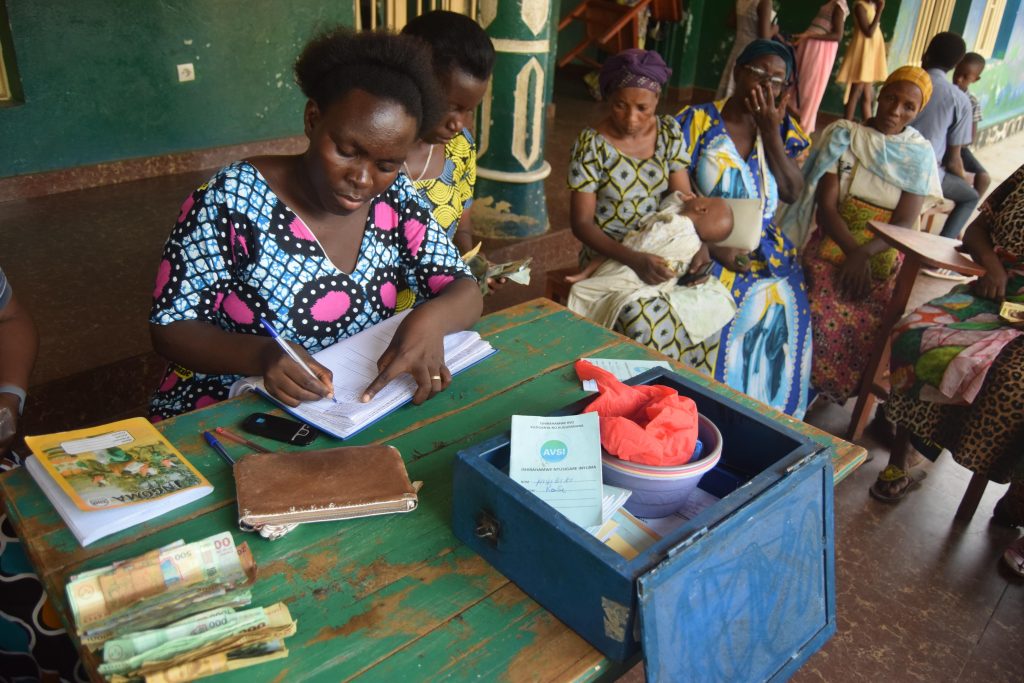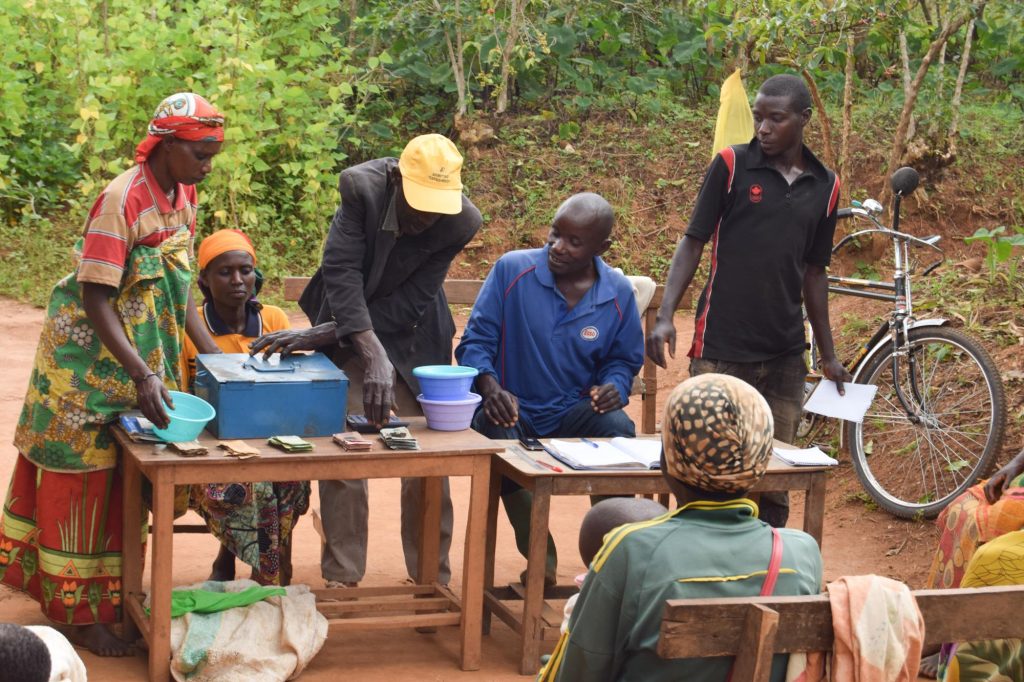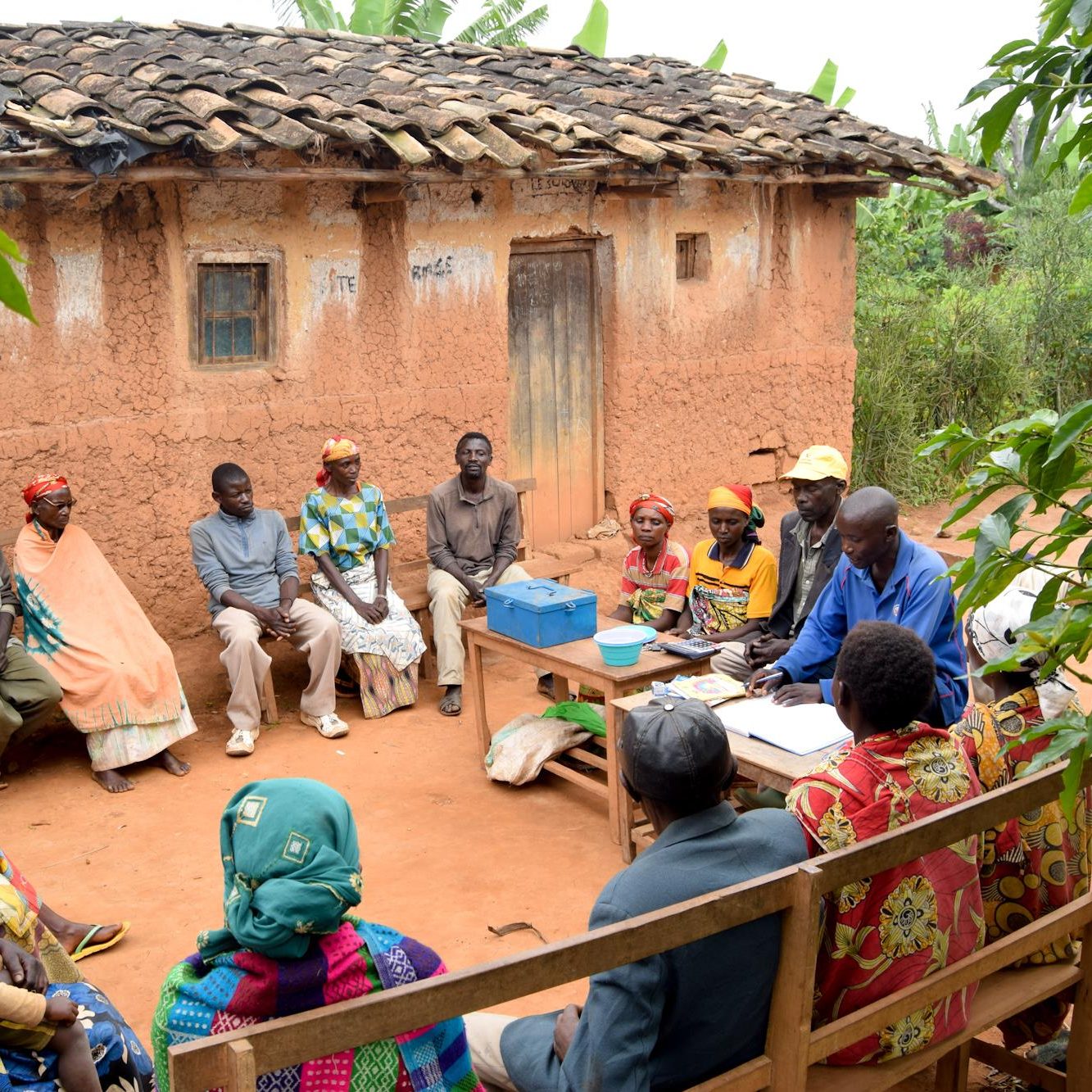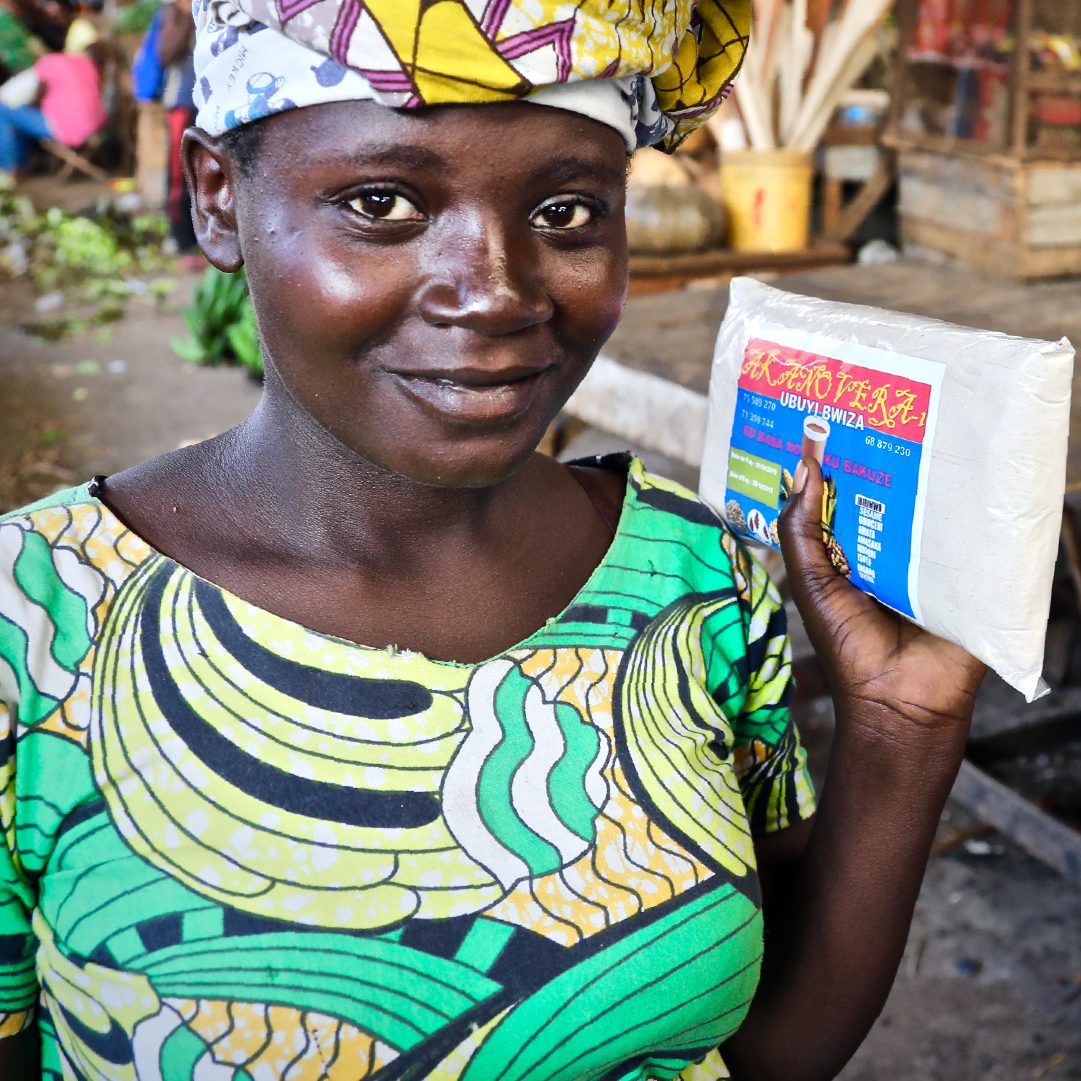Before the introduction of the AVSI Community of Savings and Internal Credit (CECI) approach in Burundi, very few women had access to a loan, which was necessary to handle substantial sums. This was almost perceived as a favor reserved for men, due to the traditions embedded in Burundian customs.
The approach implemented by AVSI in different projects is removing these barriers and is currently contributing to the strengthening of women's socio-economic empowerment, for the benefit of Burundian families.
Initiated more than 10 years ago in this country, this approach adopted particularly by rural women is currently recording remarkable success according to a multisectoral survey conducted by AVSI in the provinces of Kayanza and Ngozi, in the north of Burundi.

How a Community of Savings and Internal Credit works in Burundi
A CECI counts between 25 and 30 members. This limited membership facilitates the management of the group and at the same time encourages other interested people to initiate new CECIs when there are many requests for membership. Its members save money, take out loans and organize social assistance. Each year, the members of a CECI hold a general assembly to share all their savings and profits in order to start the year over.
The popularity of the CECI approach is real. According to this report produced by AVSI, 46% of households in Kayanza province participate in these savings and credit groups, which aim to facilitate access to credit in order to initiate income-generating activities (IGAs). In the framework of the "TUBEHONEZA" project, financed by the European Union (2019-2022) and implemented by AVSI (lead partner), Caritas International Belgium and Vétérinaires Sans Frontière Belgium, women members of the CECI’s represent 71%.
Successful cases of the Community of Savings and Internal Credit in Burundi reported
In Rwegura hill, Muruta (Kayanza province), the women members of a CECI have developed a relationship with a microfinance institution over the past year that has led to the financing of collective and individual income-generating activities . The first loan of 6 million Burundian francs (2.649 euros) was fully repaid in 6 months and the second loan is currently being used.
The notable advantage of partnering with microfinance institutions was that they were able to benefit from substantial loans, payable over a more or less long period (6 months instead of 3 months for the CECIs). The members of this group say they are satisfied and have been able to carry out various income-generating activities.
The main areas of investment by women members of the CECI are mainly related to agriculture and livestock. Thus, these women have been able to buy land and domestic animals thanks to the profits from the Income Generating Activities (IGA’s), which makes them more financially independent and self-confident.
Women acknowledge that CECI's have contributed to their economic empowerment vis-à-vis men and have gained social esteem in the community.

One woman said: "One day, I had a craving for an avocado. As usual, I asked my husband for money to buy one from the shop next door. He refused even though he had just received money from a family tea farm...”. She continued by saying that after wiping away her tears, she started putting the CECI method into practice, which had given her the capacity to have an income that met both her family's basic needs and various investments.
The members of the CECI groups are aware of the crucial role that other topics, like conflict management and promotion of human rights, play in fostering harmony and cohesion within the households and among the CECIs. The women who are CECI members also understand how crucial it is for their spouses to support them as they pursue their sources of income

